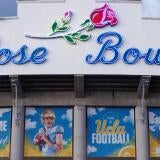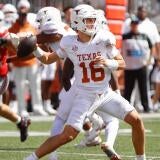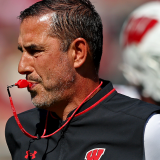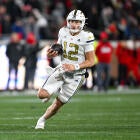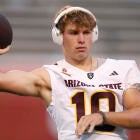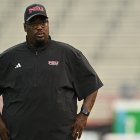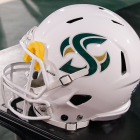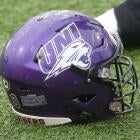Oklahoma grants QB Austin Kendall waiver for immediate eligibility at West Virginia
Oklahoma was initially aiming to prevent Kendall from immediate eligibility
Update: Oklahoma quarterback Austin Kendall will be allowed to transfer to West Virginia and become immediately eligible, CBS Sports' Dennis Dodd confirmed Wednesday evening. Oklahoma was originally seeking to block Kendall's ability to become immediately eligible at West Virginia as a grad transfer. Kendall, who will be on campus in Morgantown on Thursday, will now be eligible to play for the Mountaineers during the 2019 season. USA Today Sports' George Schroeder was first to report the news regarding Kendall's eligibility.
Oklahoma landed graduate transfer Jalen Hurts from Alabama on Wednesday as well.
Original story: With quarterback Austin Kendall looking to move from Oklahoma to West Virginia as a graduate transfer, CBS Sports has learned that the Sooners have responded by blocking Kendall's ability to become immediately eligible with the Mountaineers.
As a graduate transfer, Kendall is allowed to play immediately regardless of his destination – unless his originating school steps in. For graduate transfers, their teams are still able to "block" them from certain schools -- in this case, for a competitive reason. That rule did not change when transfer reform was instituted on Oct. 15, 2018.
Kendall, once thought to be in the running to be OU's next quarterback after the departure of Kyler Murray, entered his name in the portal on Jan. 11.
"If OU granted him the exception, he could play next season," a Big 12 source said.
That doesn't look like it's going to happen even though we know the "why" on Kendall's transfer. Former Alabama quarterback Jalen Hurts announced Wednesday that he was transferring to Oklahoma as a graduate student.
OU, winner of four consecutive Big 12 titles, is looking to replace a Heisman Trophy winner in Murray. As late as August, coach Lincoln Riley indicated Murray and Kendall were neck-and-neck from a talent and ability perspective.
Jason Kersey of The Athletic adds that Oklahoma is following this same procedure for all Big 12 schools as well as any school on OU's schedule for the next two years.
Despite Oklahoma's block, Kendall can apply for a transfer waiver from the NCAA to gain immediate eligibility. That would be a complicated and urgent process as Monday is seen as a soft deadline for all transfers. Schools operating on the semester system will begin the second semester on or around that date.
Though a graduate transfer, Kendall has two years of eligibility remaining as a redshirt sophomore.
The Sooners have reaped the benefits from two straight transfer quarterbacks. To more appropriately sell it, they have appeared in back-to-back College Football Playoffs and flaunted consecutive Heisman Trophy winners in Murray and Baker Mayfield before him, both of whom not only shattered offensive records but also provided incredible amounts of attention for the program.
To be clear: Oklahoma is not blocking Kendall from actually transferring to West Virginia -- or anywhere else, for that matter.
The cases of Kendall and Mayfield, who transferred from Texas Tech as a walk-on and was not restricted, may be apples to oranges crabapples, but there have been situations in which a graduate transfer went to another Big 12 program and played immediately.
This past season, John Bonney transferred from Texas to Texas Tech and played right away. The SEC adopted a proposal last year allowing grad transfers to play immediately if they went to another conference school. The examples may not be common, but they do exist.
While preventing Kendall from being immediately eligible at a place like WVU is unpopular, it is serves as a deterrent. Even if Kendall transferred and did not start for the Mountaineers in 2019, he knows Oklahoma's offense, players and tendencies inside and out.
Still, the optics for this, especially with the acquisition of Hurts, are rough. Kendall has fulfilled his undergraduate requirements and as the odd man out he wants to spend his last two years making the most of his one opportunity.
Of course, the Sooners aren't the first team to do this, and they won't be the last. But these types of stories, which often turn into public relations nightmares, usually only end one way. Oklahoma is the one in a position of power and it's choosing to exercise the rights given to it by its governing body. But just because you've exercised that right doesn't make it right.


